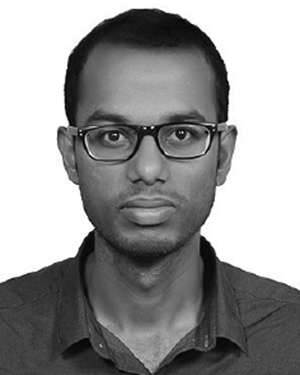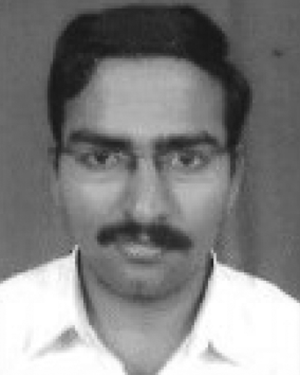Abstract:
Fault detection and identification (FDI) of electrical motors is crucial to ensuring smooth operation of several industrial systems. Detection and diagnosis of faults at ...Show MoreMetadata
Abstract:
Fault detection and identification (FDI) of electrical motors is crucial to ensuring smooth operation of several industrial systems. Detection and diagnosis of faults at the incipient stage allows corrective actions to be adopted so as to curb the severity of faults. However, FDI of incipient faults has proved to be elusive to traditional methods of fault diagnosis. With recent developments in statistical machine learning, new methods are proposed that can be used for FDI. In this paper, we adopt three tools (support vector machine, convolutional, and recurrent networks) from machine learning to address the challenge of FDI of incipient faults. We perform FDI of a dc motor with the most commonly and readily measured current data. Results from experimental data reveal that the convolutional network performs the best of the three methods. A comparative study of the performance of the three methods under different types of operating conditions is provided. Sensitivity of the techniques to noise in measurements is also studied. The proposed approach serves as a reliable tool for FDI of dc motor under different types of loading conditions.
Published in: IEEE Transactions on Industrial Informatics ( Volume: 15, Issue: 9, September 2019)
Funding Agency:

Department of Electrical Engineering, Indian Institute of Technology Gandhinagar, Gandhinagar, India
Sai Munikoti received the B.Tech. degree in electrical engineering from Birsa Institute of Technology Sindri, Dhanbad, India, in 2015, and the M.Tech. degree in electrical engineering from the Indian Institute of Technology Gandhinagar, Gandhinagar, India, in 2018.
His research interests include application of machine learning in prognostic and health diagnosis of electric appliances.
Sai Munikoti received the B.Tech. degree in electrical engineering from Birsa Institute of Technology Sindri, Dhanbad, India, in 2015, and the M.Tech. degree in electrical engineering from the Indian Institute of Technology Gandhinagar, Gandhinagar, India, in 2018.
His research interests include application of machine learning in prognostic and health diagnosis of electric appliances.View more

Department of Electrical Engineering, Indian Institute of Technology Gandhinagar, Gandhinagar, India
Laya Das received the B.Tech. degree in electronics and telecommunications from Biju Patnaik University of Technology, Rourkela, India, in 2011, and the M.Tech. degree in electrical engineering, in 2014, from the Indian Institute of Technology Gandhinagar, Gandhinagar, India, where he is currently working toward the Ph.D. degree in electrical engineering.
His research interests lie in application of signal processing, mach...Show More
Laya Das received the B.Tech. degree in electronics and telecommunications from Biju Patnaik University of Technology, Rourkela, India, in 2011, and the M.Tech. degree in electrical engineering, in 2014, from the Indian Institute of Technology Gandhinagar, Gandhinagar, India, where he is currently working toward the Ph.D. degree in electrical engineering.
His research interests lie in application of signal processing, mach...View more

Department of Electrical and Computer Engineering, Kansas State University, Manhattan, Manhattan, KS, USA
Balasubramaniam Natarajan (SM’08) received the B.E. (Hons.) degree in electrical and electronics engineering from Birla Institute of Technology and Science, Pilani, India, 1997, and the Ph.D. degree in electrical engineering from Colorado State University, Fort Collins, CO, USA, in 2002.
He is currently a Clair N. Palmer and Sara M. Palmer Endowed Professor and the Director of the Wireless Communication and Information Pro...Show More
Balasubramaniam Natarajan (SM’08) received the B.E. (Hons.) degree in electrical and electronics engineering from Birla Institute of Technology and Science, Pilani, India, 1997, and the Ph.D. degree in electrical engineering from Colorado State University, Fort Collins, CO, USA, in 2002.
He is currently a Clair N. Palmer and Sara M. Palmer Endowed Professor and the Director of the Wireless Communication and Information Pro...View more

Department of Chemical Engineering, Indian Institute of Technology Gandhinagar, Gandhinagar, India
Babji Srinivasan received the B.Tech. degree in instrumentation and control engineering from Madras Institute of Technology, Chennai, India, in 2005, the Master's degree in chemical engineering from the Indian Institute of Technology Madras, Chennai, India, in 2009, and the Ph.D. degree in chemical engineering from Texas Tech University, Lubbock, TX, USA, in 2011.
He is currently an Assistant Professor with the Department ...Show More
Babji Srinivasan received the B.Tech. degree in instrumentation and control engineering from Madras Institute of Technology, Chennai, India, in 2005, the Master's degree in chemical engineering from the Indian Institute of Technology Madras, Chennai, India, in 2009, and the Ph.D. degree in chemical engineering from Texas Tech University, Lubbock, TX, USA, in 2011.
He is currently an Assistant Professor with the Department ...View more

Department of Electrical Engineering, Indian Institute of Technology Gandhinagar, Gandhinagar, India
Sai Munikoti received the B.Tech. degree in electrical engineering from Birsa Institute of Technology Sindri, Dhanbad, India, in 2015, and the M.Tech. degree in electrical engineering from the Indian Institute of Technology Gandhinagar, Gandhinagar, India, in 2018.
His research interests include application of machine learning in prognostic and health diagnosis of electric appliances.
Sai Munikoti received the B.Tech. degree in electrical engineering from Birsa Institute of Technology Sindri, Dhanbad, India, in 2015, and the M.Tech. degree in electrical engineering from the Indian Institute of Technology Gandhinagar, Gandhinagar, India, in 2018.
His research interests include application of machine learning in prognostic and health diagnosis of electric appliances.View more

Department of Electrical Engineering, Indian Institute of Technology Gandhinagar, Gandhinagar, India
Laya Das received the B.Tech. degree in electronics and telecommunications from Biju Patnaik University of Technology, Rourkela, India, in 2011, and the M.Tech. degree in electrical engineering, in 2014, from the Indian Institute of Technology Gandhinagar, Gandhinagar, India, where he is currently working toward the Ph.D. degree in electrical engineering.
His research interests lie in application of signal processing, machine learning, optimization, estimation and control to cyber-physical systems, especially for data and energy management in smart grids.
Laya Das received the B.Tech. degree in electronics and telecommunications from Biju Patnaik University of Technology, Rourkela, India, in 2011, and the M.Tech. degree in electrical engineering, in 2014, from the Indian Institute of Technology Gandhinagar, Gandhinagar, India, where he is currently working toward the Ph.D. degree in electrical engineering.
His research interests lie in application of signal processing, machine learning, optimization, estimation and control to cyber-physical systems, especially for data and energy management in smart grids.View more

Department of Electrical and Computer Engineering, Kansas State University, Manhattan, Manhattan, KS, USA
Balasubramaniam Natarajan (SM’08) received the B.E. (Hons.) degree in electrical and electronics engineering from Birla Institute of Technology and Science, Pilani, India, 1997, and the Ph.D. degree in electrical engineering from Colorado State University, Fort Collins, CO, USA, in 2002.
He is currently a Clair N. Palmer and Sara M. Palmer Endowed Professor and the Director of the Wireless Communication and Information Processing Research Group. He has worked on applications spanning wireless communications, sensor networks, biomedical, and cyber-physical systems. He has authored/coauthored nearly 180 refereed journal and conference articles along with a book Multicarrier Technologies for Wireless Communications (Springer, 2002). His research interests include statistical signal processing, stochastic modeling, optimization, and control theories.
Balasubramaniam Natarajan (SM’08) received the B.E. (Hons.) degree in electrical and electronics engineering from Birla Institute of Technology and Science, Pilani, India, 1997, and the Ph.D. degree in electrical engineering from Colorado State University, Fort Collins, CO, USA, in 2002.
He is currently a Clair N. Palmer and Sara M. Palmer Endowed Professor and the Director of the Wireless Communication and Information Processing Research Group. He has worked on applications spanning wireless communications, sensor networks, biomedical, and cyber-physical systems. He has authored/coauthored nearly 180 refereed journal and conference articles along with a book Multicarrier Technologies for Wireless Communications (Springer, 2002). His research interests include statistical signal processing, stochastic modeling, optimization, and control theories.View more

Department of Chemical Engineering, Indian Institute of Technology Gandhinagar, Gandhinagar, India
Babji Srinivasan received the B.Tech. degree in instrumentation and control engineering from Madras Institute of Technology, Chennai, India, in 2005, the Master's degree in chemical engineering from the Indian Institute of Technology Madras, Chennai, India, in 2009, and the Ph.D. degree in chemical engineering from Texas Tech University, Lubbock, TX, USA, in 2011.
He is currently an Assistant Professor with the Department of Chemical Engineering, jointly with Electrical Engineering, Indian Institute of Technology Gandhinagar, Gandhinagar, India. His research interests include chemical process control, multivariate data analysis, controller performance assessment, and cognitive engineering.
Babji Srinivasan received the B.Tech. degree in instrumentation and control engineering from Madras Institute of Technology, Chennai, India, in 2005, the Master's degree in chemical engineering from the Indian Institute of Technology Madras, Chennai, India, in 2009, and the Ph.D. degree in chemical engineering from Texas Tech University, Lubbock, TX, USA, in 2011.
He is currently an Assistant Professor with the Department of Chemical Engineering, jointly with Electrical Engineering, Indian Institute of Technology Gandhinagar, Gandhinagar, India. His research interests include chemical process control, multivariate data analysis, controller performance assessment, and cognitive engineering.View more


